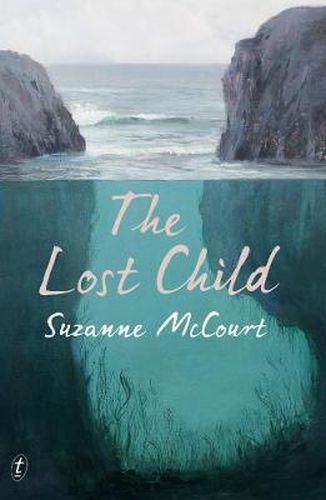Readings Newsletter
Become a Readings Member to make your shopping experience even easier.
Sign in or sign up for free!
You’re not far away from qualifying for FREE standard shipping within Australia
You’ve qualified for FREE standard shipping within Australia
The cart is loading…






From the headland, we look across to the lighthouse on Seal Island where Mr Hammett has to take the gas bottle to keep the light flashing at night. Aunt Cele says there is no land between us and the bottom of the world where everything is white ice and there are penguins as big as men, but I know this already because Dunc has told me.
Sylvie is five. It’s the 1950s and she lives in Burley Point, a fishing village south of the Coorong on Australia’s wild southern coast. She worships her older brother Dunc. She tries to make sense of her brooding mother, and her moody father who abandons the family to visit The Trollop, Layle Lewis, who lives across the lagoon.
It’s hard to keep secrets in a small town, but when Dunc goes missing, Sylvie is terrified that she is the cause. Now her father is angry all the time; her mother won’t leave the house or stop cleaning. The bush and the birds and the endless beach are Sylvie’s only salvation, apart from her teacher, Miss Taylor.
In the tradition of the novels of Anne Tyler and Eudora Welty, The Lost Child is a beautifully written story about family and identity and growing up. Sylvie is a charming narrator with a big heart and a sharp eye for the comic moment. As the years go by she learns how tiny events can change entire lives, and how leaving might be the only solution when the the world will never be the same again.
$9.00 standard shipping within Australia
FREE standard shipping within Australia for orders over $100.00
Express & International shipping calculated at checkout
Stock availability can be subject to change without notice. We recommend calling the shop or contacting our online team to check availability of low stock items. Please see our Shopping Online page for more details.
From the headland, we look across to the lighthouse on Seal Island where Mr Hammett has to take the gas bottle to keep the light flashing at night. Aunt Cele says there is no land between us and the bottom of the world where everything is white ice and there are penguins as big as men, but I know this already because Dunc has told me.
Sylvie is five. It’s the 1950s and she lives in Burley Point, a fishing village south of the Coorong on Australia’s wild southern coast. She worships her older brother Dunc. She tries to make sense of her brooding mother, and her moody father who abandons the family to visit The Trollop, Layle Lewis, who lives across the lagoon.
It’s hard to keep secrets in a small town, but when Dunc goes missing, Sylvie is terrified that she is the cause. Now her father is angry all the time; her mother won’t leave the house or stop cleaning. The bush and the birds and the endless beach are Sylvie’s only salvation, apart from her teacher, Miss Taylor.
In the tradition of the novels of Anne Tyler and Eudora Welty, The Lost Child is a beautifully written story about family and identity and growing up. Sylvie is a charming narrator with a big heart and a sharp eye for the comic moment. As the years go by she learns how tiny events can change entire lives, and how leaving might be the only solution when the the world will never be the same again.
The protagonist of Suzanne McCourt’s debut novel, The Lost Child, is Sylvie, a sharp-witted but vulnerable young girl. Living in the small fishing town of Burley Point, her father is violent and angry, her mother brooding and distant. After her adored older brother Dunc goes missing under mysterious circumstances, Sylvie blames herself, and flails to find someone, or something, to buoy her.
Situated on the wild coast of southern Australia, the town teems with movement through Sylvie’s eyes. Stretches of beach with hidden blowholes and thick bush hiding snakes and birdlife both scare and provide comfort. To bring the landscape in this close to her protagonist is a good trick by McCourt; the brimming, coiling environment neatly mirrors Sylvie’s tumultuous home life, allowing another layer of expression.
McCourt’s writing is assured and sinuous, the voice of Sylvie moving with equal measure between the rough and tumble of a child’s perspective and clipped, shrewd observations: ‘… People don’t really want to know if you’re sick. Or that fathers burn houses.’ Sylvie is dynamic, as quickly sending herself down a well of guilt and insecurity over her brother’s disappearance as she can whip into a rage against her absent father or wilting mother. McCourt has afforded Sylvie a witty sense of humour, and despite the bleakness surrounding her, she glimmers.
The Lost Child runs deeper and more darkly than a simple, small-town domestic story, and though not quick-paced, Sylvie captivates. From an ordinary child, McCourt has finely carved a protagonist who refuses to fit the prescribed mould. She is a fire spark, just the type who will burrow herself deeply within the reader, and be not lost at all.
See what the Readings’ team have to say on the blog, discover related events and podcast episodes.